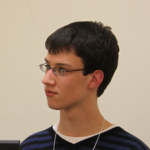What can you do with a boardroom, a projector, and a wifi access point? A movie night, you say? Nope. Just a few tools is all it took to get Mel Chua and Jan Wildeboer (from Red Hat) and Pierros Papadeas (from Fedora) together with local organizer Michael Adeyeye from the Cape Peninsula University of Technology. The event? A week-long workshop on the principles of open source communities and how to employ these in university-level teaching--in Cape Town, South Africa.
They were able to use the newly redesigned curriculum for the first time, immersing professors from three different universities in the technical and social dynamics of open source communities. Their first lesson in open source practices was about the various means of communication: IRC, mailing lists, wikis, and collaborative text editing using etherpad and gobby were a few that come to mind. Or, as Mel Chua put it in her summary of the first day of POSSE: The ability to be “productively lost” in a FOSS project cannot be obtained through sheer increase in technical skill alone; the ability to communicate within a project’s culture is a crucial skill.
After Monday's crash course on communication, blog posts started to pour from participants. They may have gotten "lost," but they found their voices.
Day 2 focused on another major aspect of open source communities: version control systems. Diffing, patching, and committing might be confusing to the uninitiated, but when taught alongside a version control system such as GIT and immediately applied to an actual project--such as Fedora's Transifex-based website translations or Sugar Labs' Sugar on a Stick documentation project--participants quickly grasped how simple tools could enable decentralized collaboration between thousands of participants at an amazing rate.
Some of the best things that happen at a POSSE are unplanned. This time out, for instance, technical issues with an attendee's laptop on day 3 got turned into a lesson on how to file bug reports . Over lunch on the same day, attendees and instructors ended up discussing the big picture: ways to directly improve the open source presence in South Africa and in its universities. They came up with concrete project proposals such as Fedora mirrors, packaging, and translations and are moving forward with a growth plan for more POSSEs in Africa. And they did (literally) work on the big picture: a collaboratively drawn image of the future of FOSS in Africa on the classroom whiteboard.
As the week ended, POSSE came full circle. Participants had made their way back around to the first day's lesson of communication and the concept of being "productively lost." They reflected on how to integrate their new knowledge back into their institutional context.
Attendee Michael Graaf from the University of Cape Town realized that his "project (facilitation of a GSM interface for the ces.org.za website), which hardly involves any coding (but lots of documentation, as well as a field test), could still become 'open source'" and is "Productively Lost Indeed"--a full POSSE experience.
We look forward to hearing stories from these POSSE alumni as they venture out with their students into open source communities in the coming semesters.

This work is licensed under a Creative Commons Attribution-Share Alike 3.0 Unported License.








Comments are closed.